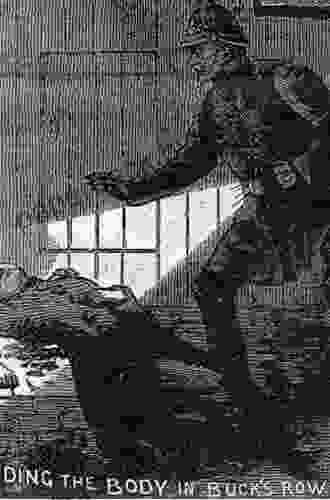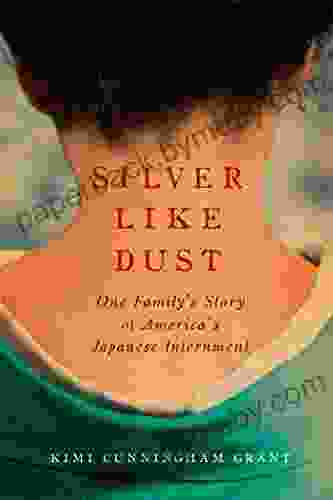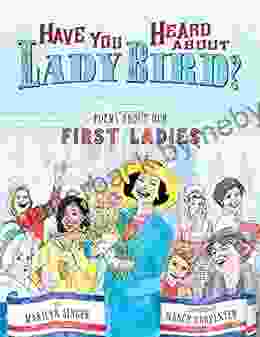Unveiling the Enigmatic World of Dark Tourism and Historical Reenactment in Education

Exploring the Transformative Power of Immersive Learning Experiences
In an era where global understanding and cultural sensitivity are paramount, study abroad programs have emerged as invaluable tools for fostering these essential qualities in students. By venturing beyond familiar bFree Downloads and immersing themselves in diverse environments, students gain firsthand perspectives on the world, developing a nuanced understanding of different cultures and histories.
5 out of 5
| Language | : | English |
| File size | : | 10127 KB |
| Text-to-Speech | : | Enabled |
| Screen Reader | : | Supported |
| Enhanced typesetting | : | Enabled |
| Word Wise | : | Enabled |
| Print length | : | 188 pages |
Among the myriad of study abroad experiences, dark tourism and historical reenactment stand out as unique and thought-provoking approaches to education. These practices offer students a profound opportunity to confront complex historical events, explore societal traumas, and engage with the legacies of the past in a visceral and deeply personal way.
Dark Tourism: Confronting the Shadows of History
Dark tourism, a term coined by Professor John Lennon, refers to the practice of visiting sites associated with death, tragedy, and violence. While it may seem counterintuitive at first glance, dark tourism has gained increasing recognition as a powerful tool for learning and reflection. By exposing students to the dark chapters of human history, dark tourism challenges their preconceived notions and compels them to grapple with the complexities of the past.
Examples of dark tourism destinations include Auschwitz concentration camp in Poland, the killing fields of Cambodia, and the Ground Zero memorial in New York City. At these sites, students are confronted with the horrors of war, genocide, and terrorism. Through guided tours, personal testimonies, and interactive exhibits, they gain a firsthand understanding of the atrocities committed and the human suffering endured.
Critics of dark tourism argue that it can be exploitative and sensationalistic. However, proponents maintain that when approached with sensitivity and respect, it can provide students with a profound and transformative learning experience. By confronting the darkest aspects of human history, students develop empathy, tolerance, and a heightened awareness of the fragility of human life.
Historical Reenactment: Stepping into the Past
Historical reenactment is another immersive learning experience that has gained popularity in study abroad programs. Reenactments involve participants dressing in period attire and engaging in activities that recreate historical events. This practice allows students to experience history firsthand, gaining a deeper understanding of the customs, beliefs, and challenges of past eras.
Examples of historical reenactments include the annual Battle of Gettysburg reenactment in Pennsylvania, the Viking Festival in Denmark, and the Roman Gladiator Games in Italy. At these events, students participate in battles, learn ancient crafts, and interact with reenactors portraying historical figures. Through these experiences, they develop a tangible connection to the past and gain a deeper appreciation for the complexities of history.
Historical reenactment can be particularly valuable for students seeking to understand the motivations and perspectives of people in different time periods. By immersing themselves in the social and cultural context of the past, students develop critical thinking skills, historical empathy, and a greater appreciation for the diversity of human experience.
The Pedagogy of Dark Tourism and Historical Reenactment
Dark tourism and historical reenactment offer unique and complementary approaches to study abroad pedagogy. By confronting the dark chapters of history and immersing themselves in the past, students develop a range of essential skills and qualities:
- Critical Thinking: Students engage in critical analysis of historical events, examining multiple perspectives and challenging preconceived notions.
- Empathy: They develop empathy for victims of tragedy and gain a deeper understanding of the human suffering caused by violence and injustice.
- Cultural Awareness: They gain insights into different cultures, customs, and traditions, fostering respect and tolerance.
- Historical Literacy: They develop a deeper understanding of historical events and the complexities of the past.
- Global Citizenship: They develop a sense of global responsibility and a commitment to promoting peace, understanding, and human rights.
To effectively integrate dark tourism and historical reenactment into study abroad programs, educators must approach these practices with sensitivity and respect. It is essential to prepare students for the emotional and intellectual challenges they may encounter, and to provide them with the support they need to process their experiences.
Dark tourism and historical reenactment offer powerful and transformative learning experiences that can profoundly impact students' understanding of the world. By confronting the shadows of history and immersing themselves in the past, they develop critical thinking skills, empathy, cultural awareness, and a deep appreciation for the diversity of human experience. As educators, we have a responsibility to harness the potential of these practices to shape global citizens who are informed, compassionate, and committed to building a better future.
5 out of 5
| Language | : | English |
| File size | : | 10127 KB |
| Text-to-Speech | : | Enabled |
| Screen Reader | : | Supported |
| Enhanced typesetting | : | Enabled |
| Word Wise | : | Enabled |
| Print length | : | 188 pages |
Do you want to contribute by writing guest posts on this blog?
Please contact us and send us a resume of previous articles that you have written.
 Book
Book Novel
Novel Page
Page Chapter
Chapter Text
Text Story
Story Genre
Genre Reader
Reader Library
Library Paperback
Paperback E-book
E-book Magazine
Magazine Newspaper
Newspaper Paragraph
Paragraph Sentence
Sentence Bookmark
Bookmark Shelf
Shelf Glossary
Glossary Bibliography
Bibliography Foreword
Foreword Preface
Preface Synopsis
Synopsis Annotation
Annotation Footnote
Footnote Manuscript
Manuscript Scroll
Scroll Codex
Codex Tome
Tome Bestseller
Bestseller Classics
Classics Library card
Library card Narrative
Narrative Biography
Biography Autobiography
Autobiography Memoir
Memoir Reference
Reference Encyclopedia
Encyclopedia Oh Great
Oh Great Kerry Diamond
Kerry Diamond Kerri Maniscalco
Kerri Maniscalco Q Hayashida
Q Hayashida Scott S Powell
Scott S Powell Tien Tzuo
Tien Tzuo Mark Linley
Mark Linley Kevin Henkes
Kevin Henkes Steffen Wittenbecher
Steffen Wittenbecher Kenneth R Ginsburg
Kenneth R Ginsburg Rob Goodman
Rob Goodman Kim Todd
Kim Todd Ona Gritz
Ona Gritz Kevin Bridges
Kevin Bridges Muhammad Yusuf Saleem
Muhammad Yusuf Saleem Kevin Callan
Kevin Callan Sid Hartman
Sid Hartman Susan Zeppieri
Susan Zeppieri Kevin Bruyneel
Kevin Bruyneel Stephen Tarsitano
Stephen Tarsitano
Light bulbAdvertise smarter! Our strategic ad space ensures maximum exposure. Reserve your spot today!
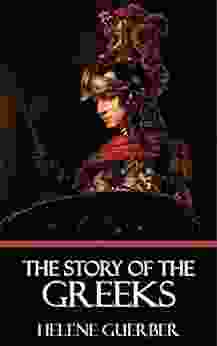
 Brennan BlairDive into the Epic Saga: The Story of the Greeks, Quintessential Classics...
Brennan BlairDive into the Epic Saga: The Story of the Greeks, Quintessential Classics...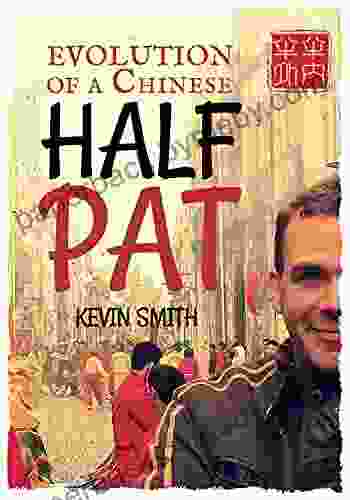
 Norman ButlerUnraveling the Enchanting Evolution of Chinese Halfpat: A Journey of Beauty,...
Norman ButlerUnraveling the Enchanting Evolution of Chinese Halfpat: A Journey of Beauty,...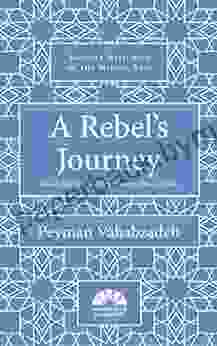
 Harold PowellRebel Journey: Embark on an Unforgettable Adventure of Self-Discovery and...
Harold PowellRebel Journey: Embark on an Unforgettable Adventure of Self-Discovery and... Franklin BellFollow ·12.6k
Franklin BellFollow ·12.6k Leo TolstoyFollow ·11.6k
Leo TolstoyFollow ·11.6k George Bernard ShawFollow ·19.4k
George Bernard ShawFollow ·19.4k Vince HayesFollow ·10.9k
Vince HayesFollow ·10.9k Graham BlairFollow ·5.1k
Graham BlairFollow ·5.1k Adrian WardFollow ·9.3k
Adrian WardFollow ·9.3k Percy Bysshe ShelleyFollow ·12.9k
Percy Bysshe ShelleyFollow ·12.9k Harry HayesFollow ·3.8k
Harry HayesFollow ·3.8k
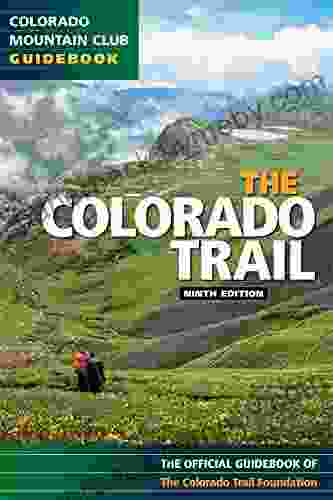
 Isaac Asimov
Isaac AsimovEmbark on an Epic Adventure: The Colorado Trail 9th...
Unveiling the Treasures of the Colorado...
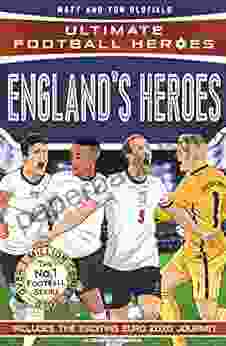
 Clinton Reed
Clinton ReedUltimate Football Heroes: Uncover the Gridiron Greatness...
Enter the World...
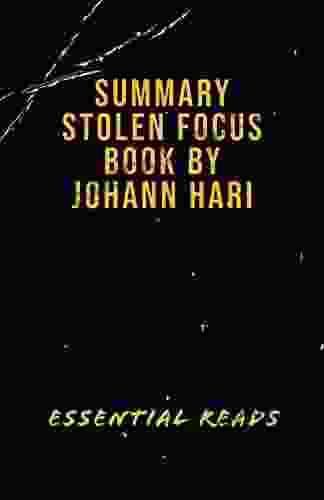
 Ibrahim Blair
Ibrahim BlairUnveiling the Secrets of Stolen Focus: A Journey to...
In today's relentless digital...
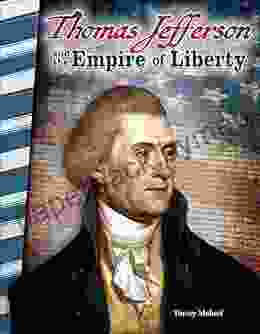
 Colt Simmons
Colt SimmonsRediscover the Founding Father's Vision: Thomas Jefferson...
Immerse Yourself in the Unedited Words of...
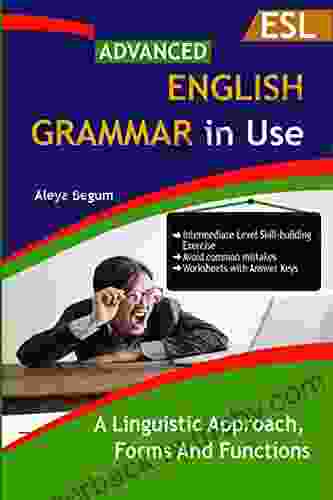
 Juan Butler
Juan ButlerExcel in Language Learning: The Ultimate Self-Study...
Unlock Your Language Potential with Our...
5 out of 5
| Language | : | English |
| File size | : | 10127 KB |
| Text-to-Speech | : | Enabled |
| Screen Reader | : | Supported |
| Enhanced typesetting | : | Enabled |
| Word Wise | : | Enabled |
| Print length | : | 188 pages |


